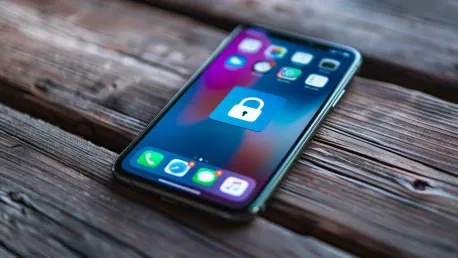We live in a digitally advanced world where securing your smartphone is essential to keeping your private and sensitive information protected. For many of us, our personal, financial, and professional lives and information are all stored and managed on our mobile devices. So, any infiltration from third parties can pose a great danger to our livelihoods and entire being. Similar to the advancement of technology, hackers are constantly evolving their methods of exploiting vulnerabilities in smartphones. Therefore, without taking the proper precautions, you put your data in huge jeopardy. Below, we explore different simple and relatable ways to protect your smartphone from hackers.
Implement Robust Passwords and Biometric Security
One of the simplest and most basic ways of protecting our smartphones from hackers is to set robust passwords. The first line of defense against unauthorized access is whatever you use to unlock your device, be it a pattern, PIN, or biometric method. When setting a password, it’s crucial to avoid simple and predictable options like birthdays or the all-too-common “1234.” Instead, aim for at least a 6-digit PIN or, preferably, a complex alphanumeric password. An effective password should comprise a mix of upper and lowercase letters, symbols, and numbers. The general rule is that the longer and more complex the password, the better.
Additionally, enabling biometric authentication such as fingerprint scanning, iris recognition, or facial recognition adds an extra layer of security. Biometric methods make it significantly more difficult for hackers to gain access to your device since these features are not easily replicated. While these methods may seem advanced, many modern smartphones come equipped with these capabilities, making it a practical and robust choice for those concerned about digital security.
Keep Your Software Up-to-Date
Regularly updating your smartphone’s operating system and installed apps is another essential step in protecting your device. Software updates often include patches for vulnerabilities that hackers could exploit, as well as new features that can enhance your user experience. Enabling automatic updates ensures that you receive these critical patches as soon as they are released, thereby minimizing the window of opportunity for potential attacks. Of course, you can also manually check for updates if you prefer a hands-on approach.
It’s important to understand that software vulnerabilities act as gateways for malware, hacking attempts, and ransomware. If left unpatched, these vulnerabilities can be exploited by malicious actors to infiltrate your device. Therefore, timely updates are non-negotiable when it comes to safeguarding your smartphone.
Download Apps from Trusted Sources
Apps can be another avenue for hackers to steal your data through malicious software, commonly known as malware. To mitigate this risk, avoid downloading apps from unofficial or third-party sources. Instead, stick to official app stores like the Google Play Store for Android devices and the Apple App Store for iOS devices. These platforms conduct regular checks and verifications to minimize the risk of malicious content making its way onto your phone.
Before installing any app, it’s also prudent to review the permissions it requests. Be aware and only grant permissions that are required for the app to function properly. For instance, a photo editing app shouldn’t need access to your location or contact list. Being vigilant about app permissions can go a long way in ensuring that no unnecessary data is exposed to potential threats.
Be Cautious with Links
Phishing scams are one of the most common methods hackers use to trick people into giving away sensitive information. These scams often materialize through emails, text messages, or even phone calls that appear to be from legitimate sources. Therefore, it is crucial to be wary of any text messages or emails that request personal information, financial details, or passwords. Even if the sender looks familiar, double-checking never hurts. Avoid clicking on suspicious links or downloading attachments from unknown senders.
Always check the URL before entering any sensitive information. Look for HTTPS in the URL, which indicates that the website is secured. An absence of HTTPS could mean the site is spoofed, and any data you enter could be intercepted by cybercriminals. This simple yet effective measure can prevent your information from falling into the wrong hands.
Activate Two-Factor Authentication (2FA)
Two-Factor Authentication (2FA) offers an additional layer of security during the login process. Besides entering a password, you will be required to confirm your identity through a second method such as an email code, an authentication app, or a text message. Even if a hacker manages to obtain your password, 2FA helps ensure that they won’t be able to access your account without the second form of verification.
Consider activating 2FA for your sensitive accounts like social media, banking, and email. For more robust security, you might prefer using authenticator apps like Google Authenticator or Authy, which generate time-sensitive codes. These apps are generally more secure than SMS codes, which can sometimes be intercepted through SIM-swapping attacks. By adopting 2FA, you significantly enhance the security measures protecting your personal data.
Utilize a VPN (Virtual Private Network)
Public Wi-Fi networks are often insecure, making you vulnerable to cyber attacks if you don’t take the proper precautions. One effective way to protect your data is by using a VPN to encrypt your internet traffic and hide your IP address. This makes it harder for hackers to monitor or take over your online activity. When selecting a VPN service, make sure to choose one that is reputable, doesn’t log your activity, and offers strong encryption.
It is advisable to steer clear of free VPN services, as they are often less secure and might even sell your data. Investing in a reliable, paid VPN service can provide the peace of mind you need when using public networks. This extra layer of security is invaluable when you’re accessing sensitive information, such as bank accounts or work emails, over public Wi-Fi.
Turn Off Bluetooth, NFC, and Location Services When Unused
Leaving Bluetooth, NFC, and location services enabled when they’re not in use can present an entry point for hackers. They can use an open Bluetooth connection to gain access to your device, send malicious files, or skim data from contactless payment systems. Therefore, it’s advisable to disable these features when they are not in use.
Similarly, turning off location services can help prevent hackers from tracking your movements or targeting you for location-based phishing scams. These are simple, yet effective measures to ensure that your smartphone remains secure from potential threats. By taking a few seconds to disable these services when not needed, you’ll be making it significantly harder for any malicious attempt to compromise your device.
Install a Mobile Security App
Just like computers, smartphones can benefit from antivirus and security apps that protect against cyber threats. These apps offer real-time malware scanning and can quickly detect and remove malicious files before they cause any harm. Furthermore, they ensure safe browsing and can alert you to phishing websites or malicious links before you click on them.
Some highly recommended mobile security apps include Kaspersky, Norton Mobile Security, Bitdefender, and McAfee. These apps provide comprehensive protection features tailored for mobile devices and can be an effective part of your overall cybersecurity strategy. By installing a reliable mobile security app, you add another layer of defense that can considerably enhance the security of your smartphone.
Summary
In today’s digitally advanced world, securing your smartphone is crucial for safeguarding your private and sensitive information. For many, these devices store and manage personal, financial, and professional data, making them prime targets for cybercriminals. Consequently, any unauthorized access can severely impact your professional life, finances, and overall well-being. Just as technology progresses, hackers continuously develop new methods to exploit vulnerabilities in smartphones. Without proper protective measures, you risk exposing your valuable data to considerable danger.
With various facets of life managed on mobile devices, from banking apps to work emails, the importance of robust security cannot be understated. Simple yet effective strategies for protecting your smartphone include using strong passwords, enabling two-factor authentication, regularly updating software, and being cautious of suspicious links and apps. Utilizing these methods can significantly help in mitigating the risks posed by hackers. Below, we delve into several straightforward and relatable tactics to ensure your smartphone remains secure from potential cyber threats.









